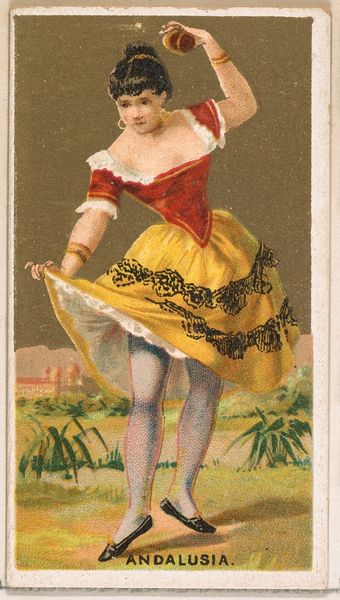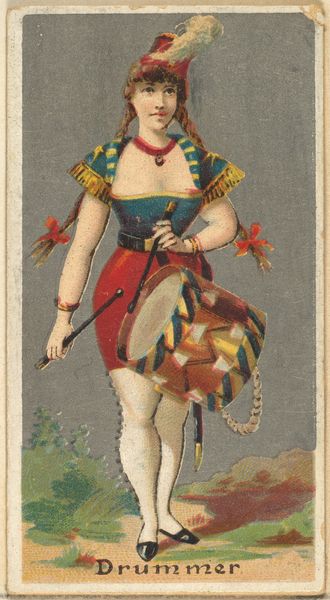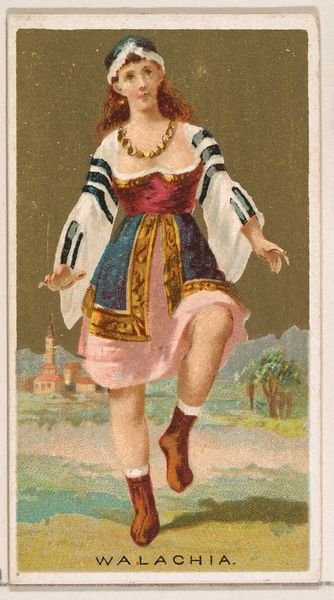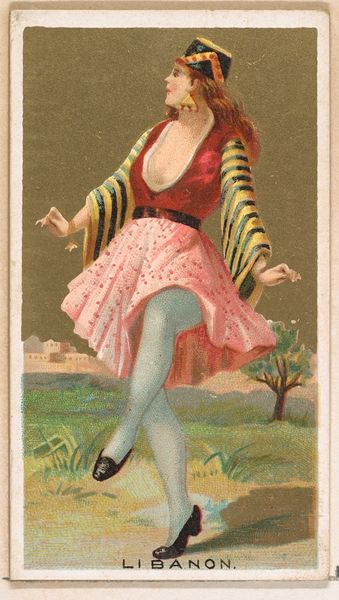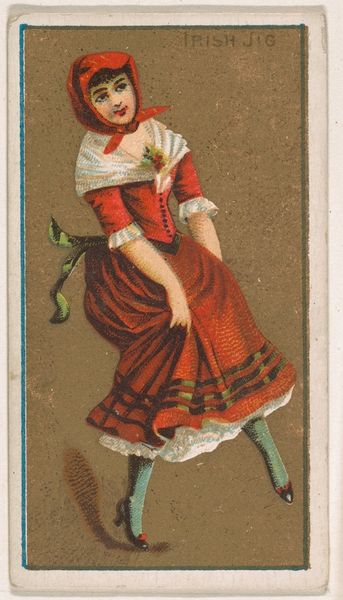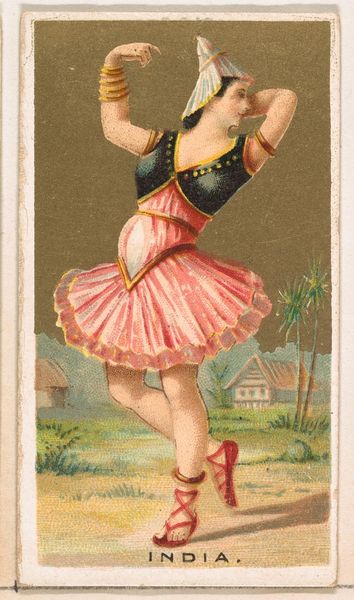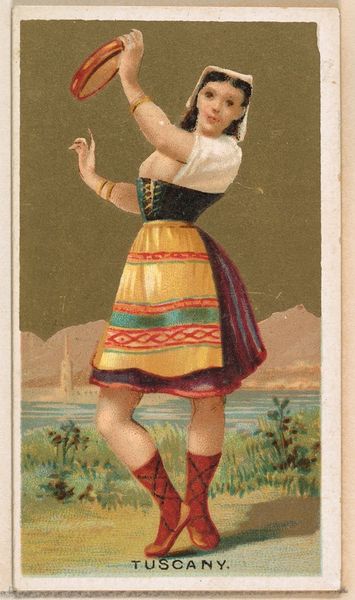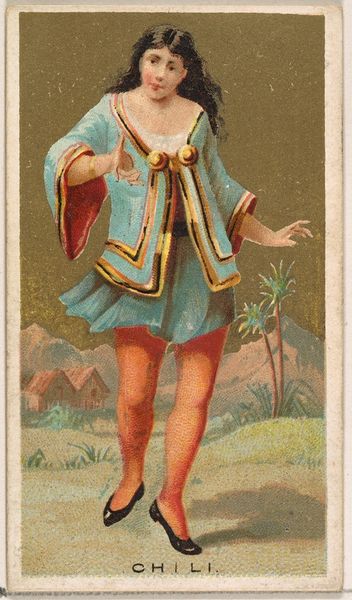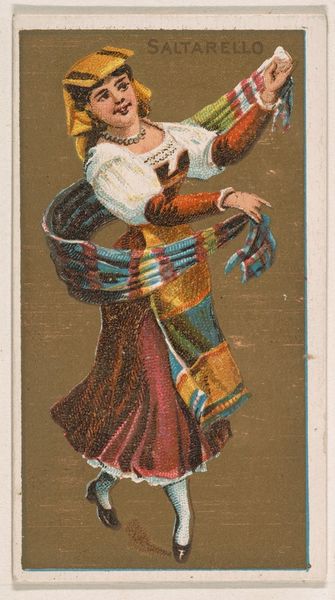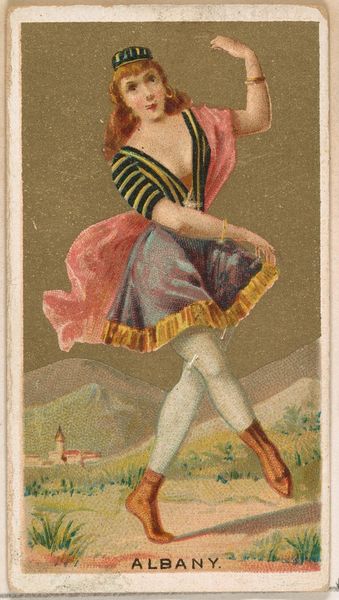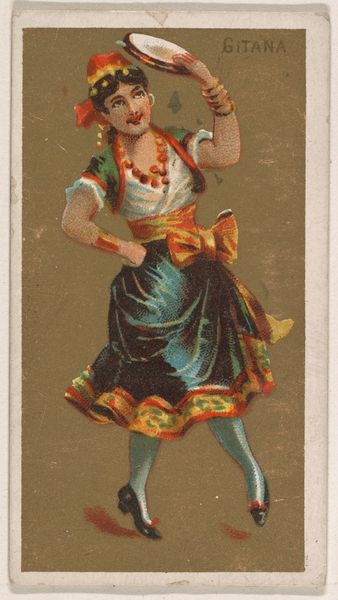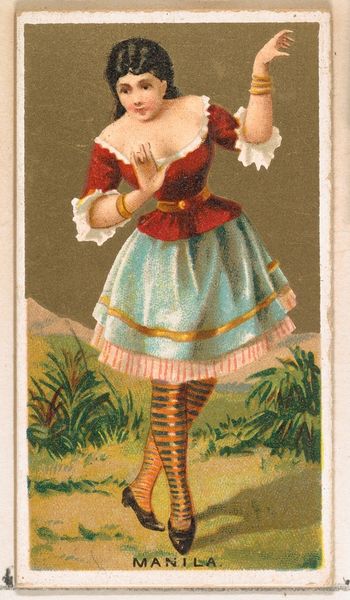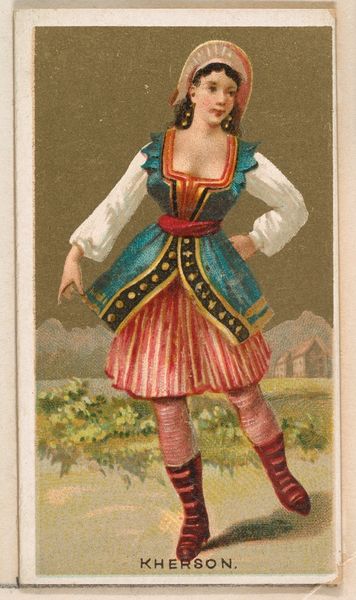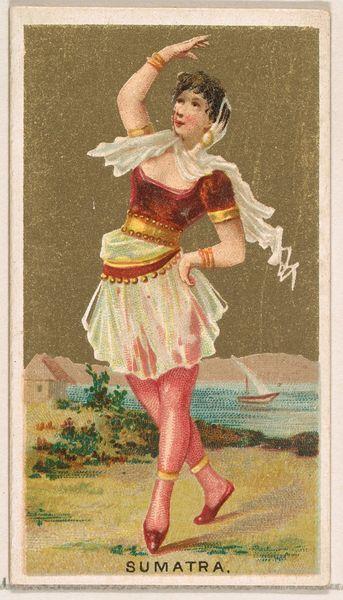
Anahuac, from the Dancing Girls of the World series (N185) issued by Wm. S. Kimball & Co. 1889
0:00
0:00
drawing, coloured-pencil, print, gouache
#
portrait
#
gouache
#
drawing
#
coloured-pencil
# print
#
impressionism
#
gouache
#
figuration
#
coloured pencil
#
orientalism
#
genre-painting
Dimensions: Sheet: 2 11/16 × 1 1/2 in. (6.8 × 3.8 cm)
Copyright: Public Domain
This small-scale print called Anahuac, part of the Dancing Girls of the World series, was issued by Wm. S. Kimball & Co. in the late 19th century. The series encapsulates the era’s fascination with global cultures, filtered through a lens of exoticism and colonialism. The image depicts a woman in a stylized version of what is presented as traditional Mexican dress. We must consider how the woman and her culture are viewed through the eyes of American commercial interests. This was a time of increasing American expansionism and intervention in Latin America. The so-called “dancing girl” is less an individual and more a symbol used to promote the company's products. This commercial approach flattens cultural identity into easily digestible stereotypes. Reflect on what it means to represent a culture, especially when power dynamics are imbalanced. The woman appears to offer herself up for our consumption, mirroring the ways entire cultures were being commodified and consumed during this era.
Comments
No comments
Be the first to comment and join the conversation on the ultimate creative platform.
